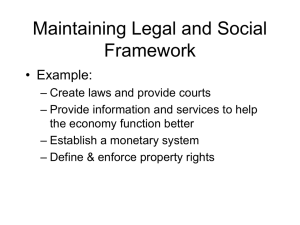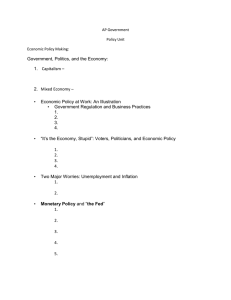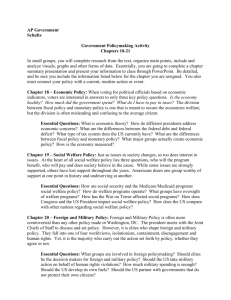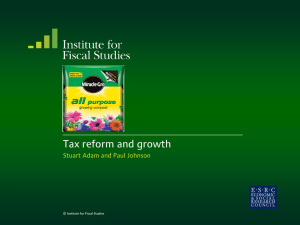Ch. 12
advertisement
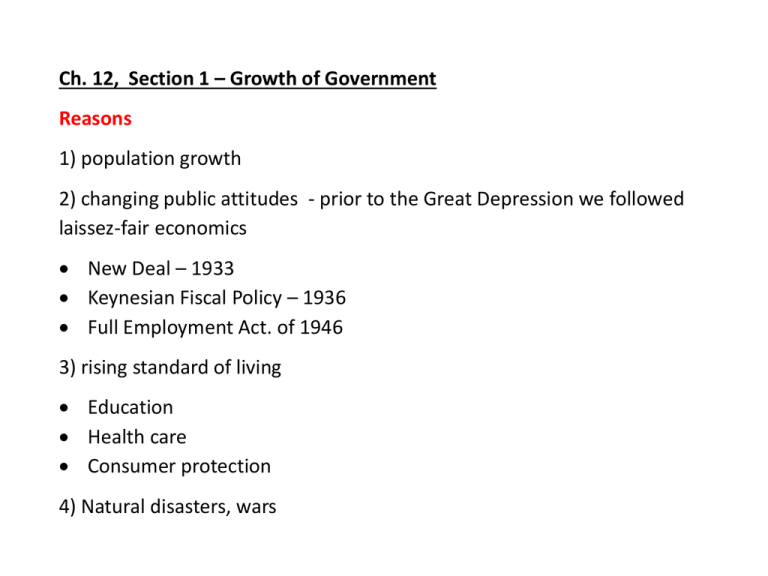
Ch. 12, Section 1 – Growth of Government Reasons 1) population growth 2) changing public attitudes - prior to the Great Depression we followed laissez-fair economics New Deal – 1933 Keynesian Fiscal Policy – 1936 Full Employment Act. of 1946 3) rising standard of living Education Health care Consumer protection 4) Natural disasters, wars Where do your tax dollars go? Federal government 1) half goes to insurance benefits (SS and Medicare) and interest on debt 2) the rest goes to national defense, education, public hospitals, housing and community development, and law enforcement State and local government 1) the majority goes to education, public welfare, road construction & maintenance 2) the rest goes to public libraries, hospitals and health care, police and fire protection, public buildings, sanitation services, and government administration Section 2 Role of Government 1) Regulating Businesses and products (can lead to higher prices) Four Purposes of government regulation (see chart on pg. 285) 1) preventing abuses – EEOC, OSHA 2) protecting consumers – FDA, FCC 3) limiting negative externalities – EPA 4) promoting competition – Sherman Anti-trust Act. 1890 (Ch. 6) 2) Providing Public Goods 3) Promoting Economic Well-Being Standard of living – diet, product consumption, medical care, and education Redistributing income – The government attempts to reduce the gap between the rich and the poor through a system of transfer payments (i.e. welfare) 4) Stabilizing the Economy (only Federal gov.) – comes from the Constitution’s mandate to promote the general welfare of the people Moderate the business cycle – to avoid inflation or recession the government uses both Monetary and Fiscal Policy Responding to market failures 1)externalities 2) the inability or unwillingness to produce some public goods 3) inadequate business competition 4) consumer inadequate knowledge of market conditions
